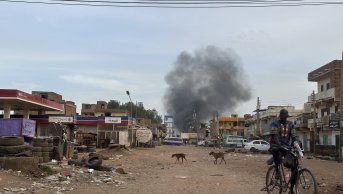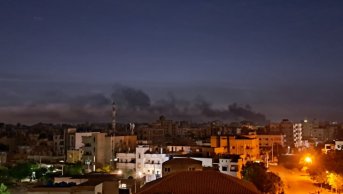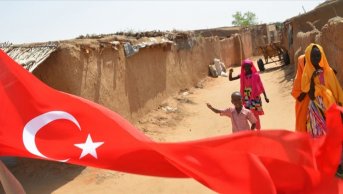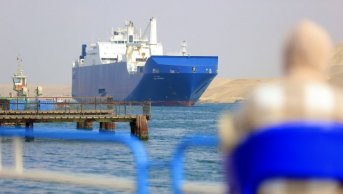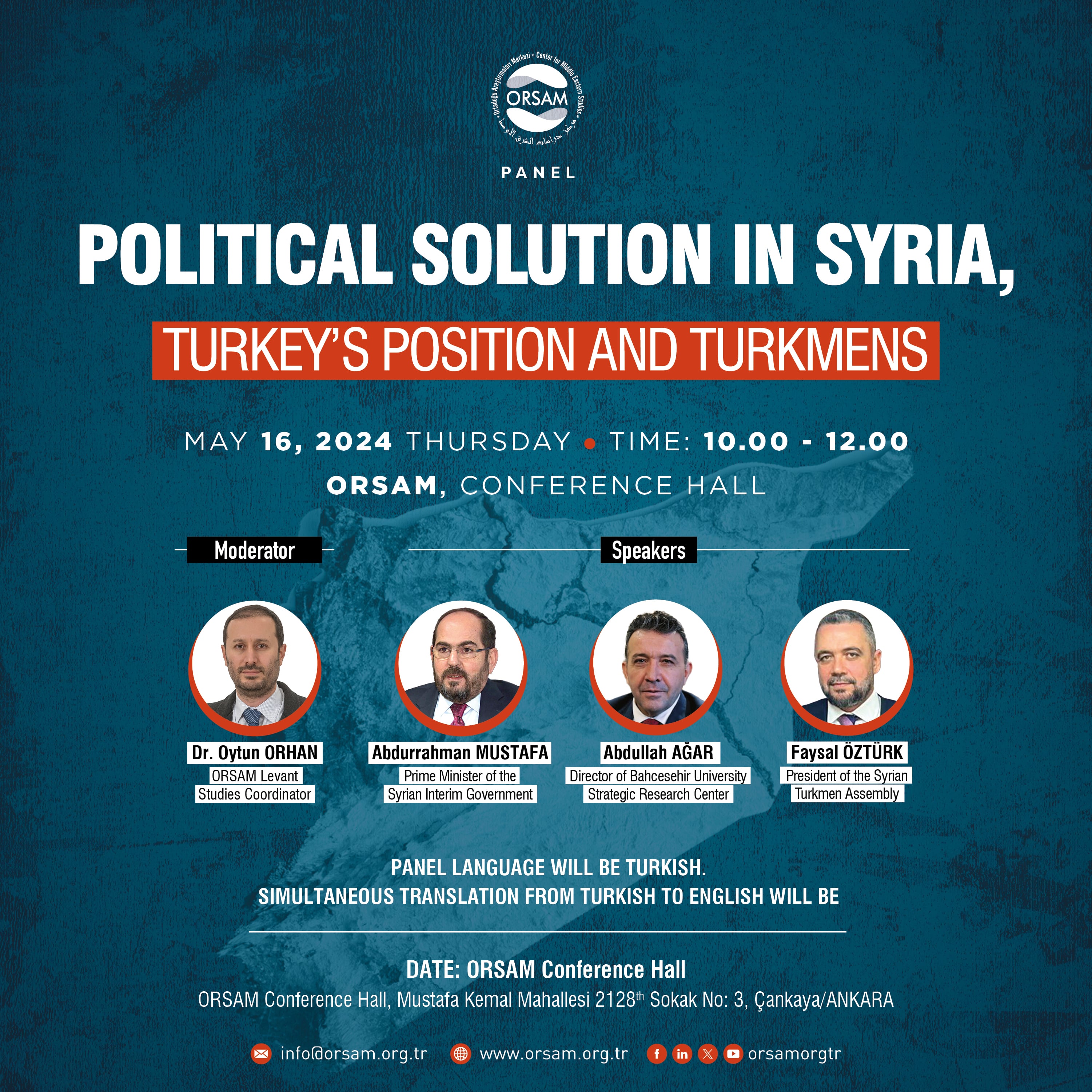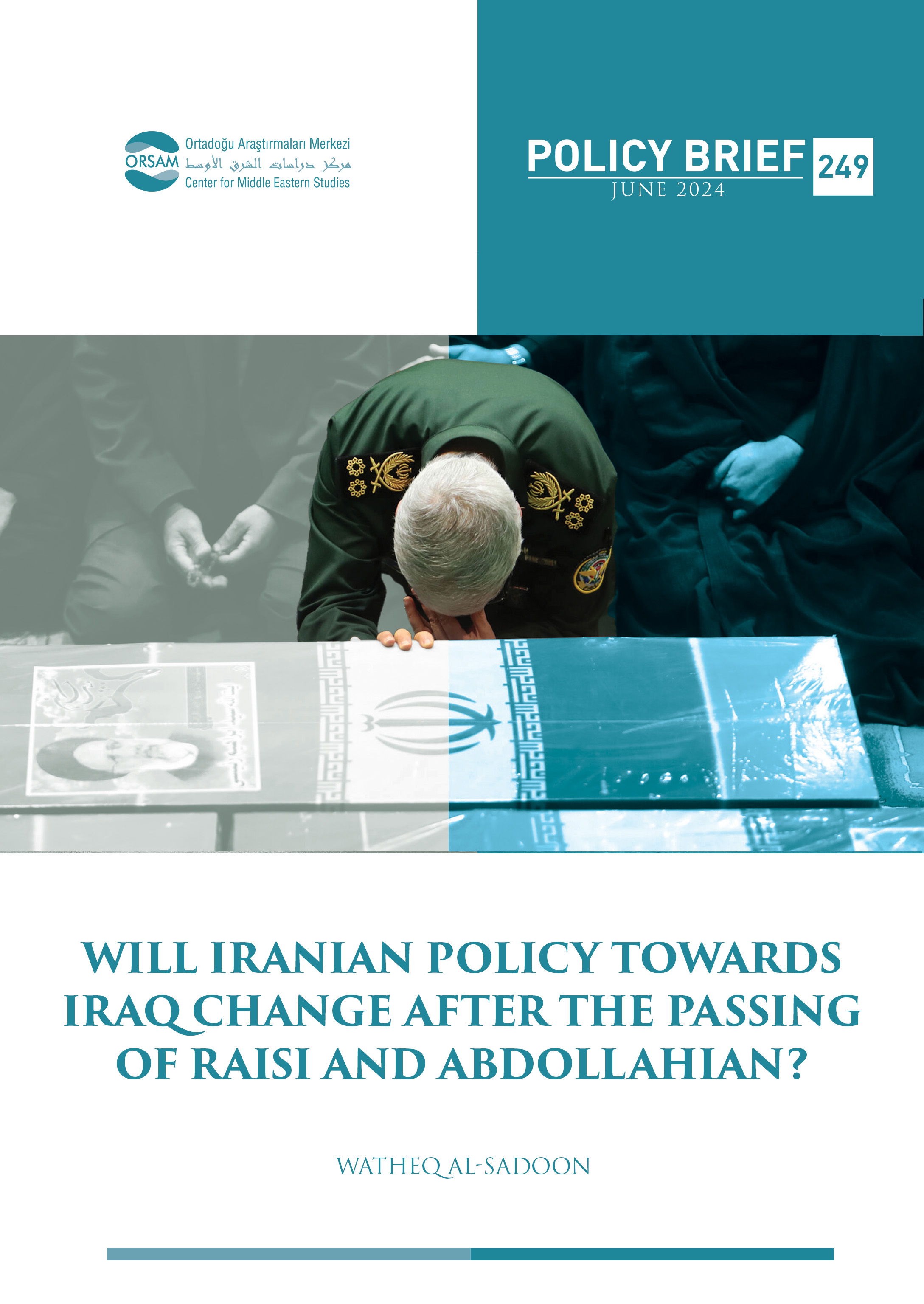The Toll of Sudan’s Civil War on its First Anniversary

Sudan has entered the first year of its civil war, a power struggle between two generals, with Sudanese society bearing the cost. Throughout this period, millions of people have been displaced or have lost their lives. The country's economy, already struggling since the secession of South Sudan in 2011, continued its rapid decline following the ousting of Omar al-Bashir in April 2019. The civil war has set back Sudan's already faltering economy by decades. Understanding how Sudan was dragged into this civil war and the toll it has taken in its first year could contribute to initiatives aimed at resolving the issue.
How Sudan Was Dragged into Civil War
Sudan entered a political transition period following the overthrow of Omar al-Bashir in 2019, a process that continued into 2023 with internal conflicts, political crises, and calls for international intervention. The subsequent formation of the Sovereignty Council, a body composed of both civilian and military members, experienced an unstable period due to power-sharing disagreements. Although the council was established under the Constitutional Declaration signed in 2019 with plans for democratic elections by 2024, economic crises, disputes among internal political groups, and their relations with foreign actors complicated the achievement of political stability in Sudan.
In 2021, a military intervention by the council's military members led to the house arrest of civilian Prime Minister Abdullah Hamduk, triggering a government crisis. This situation deepened the rifts between civilian and military groups. Tribes and sects from regions like Darfur and Port Sudan organized rallies supporting the military governance, triggering the October 25 coup. Following the coup, Hamduk was reappointed as the Prime Minister through an agreement that caused divisions among civilians and escalated protest demonstrations.
Hamduk's resignation at the beginning of 2022 continued to occupy Sudan's internal politics with political detainees, disputes among internal political groups, and the mediation process. An international and regional actor-supported mediation mechanism signed a political declaration (Political Framework Agreement) foreseeing a 30-month political transition between civilian and military parties. However, this declaration was not accepted by political groups that demanded a complete transition to civilian rule.
On April 15, 2023, conflicts erupted between the Chairman of the Sovereignty Council and Army Commander Abdel Fattah al-Burhan and his Deputy, Rapid Support Forces (RSF) Commander Mohammed Hamdan Dagalo, primarily over power-sharing. Among the reasons behind the conflict were Dagalo’s reconsideration of his October 2021 intervention as a mistake, his preference for civilian attire during diplomatic meetings, and his request for military helicopters from Russia for the RSF, all of which exacerbated tensions with al-Burhan. Additionally, disagreements over the timeline and process for integrating the RSF into the Sudanese army under the December 2022 Political Framework Agreement were among the main causes of the current conflict.
The conflicts have worsened the economy, leading to thousands of deaths and displacing millions. The international community has called for a ceasefire and a return to negotiations, but there has been no significant success in resolving the conflicts.
The Economic Cost of Conflicts in Sudan
Sudan's economy has paid a heavy price since the conflicts began on April 15, 2023. According to the International Monetary Fund (IMF) and World Bank data, the Gross Domestic Product (GDP) contracted by 40% in 2023, dropping from 42 billion USD to 25 billion USD. The economy is expected to shrink by another 18.3% in 2024.
The hardships are evident in economic indicators. The agricultural sector, which comprises a third of the economy, has been severely impacted, experiencing a 60% decline. Sudan's currency, the pound, which was approximately 500 to 1 USD just before the conflicts, has now risen above 1000 pounds, indicating a significant devaluation that is alarming for a sustainable economy.
The unemployment rate has risen dramatically, placing an already struggling populace in an even more difficult situation. From 32.14% in 2022, the unemployment rate soared to 47.2% a year later, meaning nearly half of the population is jobless, clearly showcasing the dire state of the economy.
Inflation rates also indicate a concerning rise. While inflation stood at 129% in 2022 and dropped slightly to 127% in 2023, an expected inflation rate of 256.17% for 2024 suggests a significant decrease in purchasing power and an escalation of living costs to unmanageable levels, as evidenced by rising rents and other living expenses in Port Sudan, where many Sudanese are forced to migrate.
Therefore, these data indicate that Sudan must take immediate and comprehensive measures to restore economic stability. With the support of the international community and without an end to internal conflicts, it is highly challenging for Sudan to escape this economic bottleneck.
The Humanitarian Crisis Dimension as a Priority Issue
According to the International Organization for Migration (IOM), more than 8 million of Sudan's 50 million population have been forced to leave their homes due to the civil war, with 1.7 million migrating outside the country. In addition to neighboring countries, Türkiye, Middle Eastern, and European countries are prominent destinations for those fleeing Sudan. People who have moved to safer areas within and outside neighboring countries also struggle under difficult conditions as a consequence of economic problems. According to a report by the UN Office for the Coordination of Humanitarian Affairs (UNOCHA) and IOM, approximately 2.7 billion USD in aid is needed for those displaced in Sudan, with the current budget standing at about 155 million USD. Thus, an urgent international aid call by the UN is necessary.
Additionally, the civil war in Sudan has negatively impacted health, food security, and education in the country. According to a World Health Organization (WHO) report focused on the conflicts in Sudan, 60 health facilities have become inoperable, and 70% of health facilities in conflict zones have been damaged. In terms of food security, a UNOCHA report states that about 20 million people are in need of food, with only 7 million able to access it. Regarding education, the UNOCHA report indicates that education has been provided to 87,000 children who have migrated to safe areas within and outside the country by the UN.

The devastating effects of Sudan's civil war have deeply wounded the country, both humanly and economically. While developing policy recommendations for resolving the conflict, immediate steps need to be taken in three main categories:
First, the international community must apply more effective diplomatic pressure to bring the conflicting parties to the negotiation table and ensure a ceasefire.
Second, the increase and better coordination of humanitarian aid are imperative; this is crucial for providing urgent aid to millions of displaced people and those suffering from food insecurity.
Lastly, among the long-term solutions, stabilizing the economy and reestablishing democratic processes under civilian governance are priority goals. The supportive role of international financial institutions is crucial for achieving these objectives.
However, these steps alone are not sufficient for sustainable peace and societal recovery; a national reconciliation process must also be promoted to find permanent solutions to Sudan's deepening social and economic issues. This process should be transparent and inclusive, fairly representing all ethnic and political groups. Only then can Sudan recover from the trauma caused by prolonged internal conflicts and initiate genuine social and economic development.
This article was published on the Anadolu Agency website under the title “1. yıl dönümünde Sudan iç savaşının bilançosu” on April 15, 2024.

